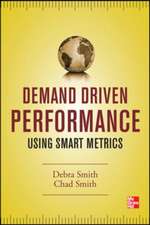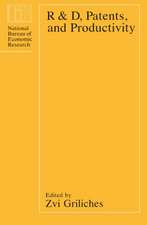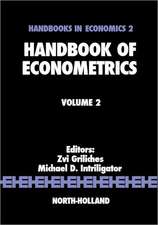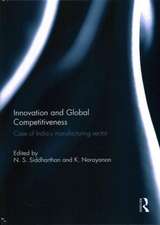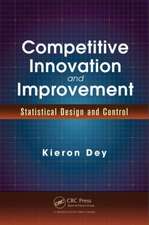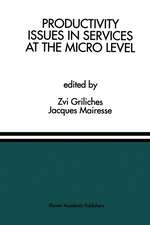R & D, Education & Productivity – A Retrospective
Autor Zvi Grilichesen Limba Engleză Hardback – feb 2001
The book begins with economists' first attempts to measure productivity growth systematically in the 1930s. In the mid-1950s these efforts culminated in a startling puzzle. The growth of measured inputs like labor and capital explained only a fraction of the growth of national output. Economists called this phenomenon "efficiency" or "technical change" or "the residual." However, Griliches observes that the most accurate name was a "measure of our ignorance." What explained the rest of economic growth quickly became one of the most important questions in economics.
Over the next thirty years, Griliches and his colleagues and students looked for various components of the residual in education (the formation of human capital), investment (the formation of physical capital), and research and development. In 1973, after the oil price shocks, productivity growth slowed and the residual almost disappeared. Since the shocks were a short-term phenomenon, they could not account for the slowdown. A main focus of this book is therefore the puzzle of the productivity slowdown and how to date it and how to explain it.
Preț: 531.76 lei
Preț vechi: 690.60 lei
-23% Nou
Puncte Express: 798
Preț estimativ în valută:
101.75€ • 106.52$ • 84.19£
101.75€ • 106.52$ • 84.19£
Carte tipărită la comandă
Livrare economică 05-19 aprilie
Preluare comenzi: 021 569.72.76
Specificații
ISBN-13: 9780674003439
ISBN-10: 0674003438
Pagini: 142
Dimensiuni: 160 x 234 x 16 mm
Greutate: 0.33 kg
Ediția:New.
Editura: Harvard University Press
ISBN-10: 0674003438
Pagini: 142
Dimensiuni: 160 x 234 x 16 mm
Greutate: 0.33 kg
Ediția:New.
Editura: Harvard University Press
Descriere
Griliches was a modern master of empirical economics. Here, he recounts what he and others have learned about the sources of economic growth, and conveys how he tackled research problems. For Griliches, theorizing without measurement produces mere parables, but measurement without theory is blind. Judgment enables one to strike the right balance.

